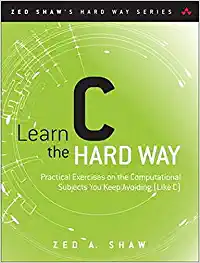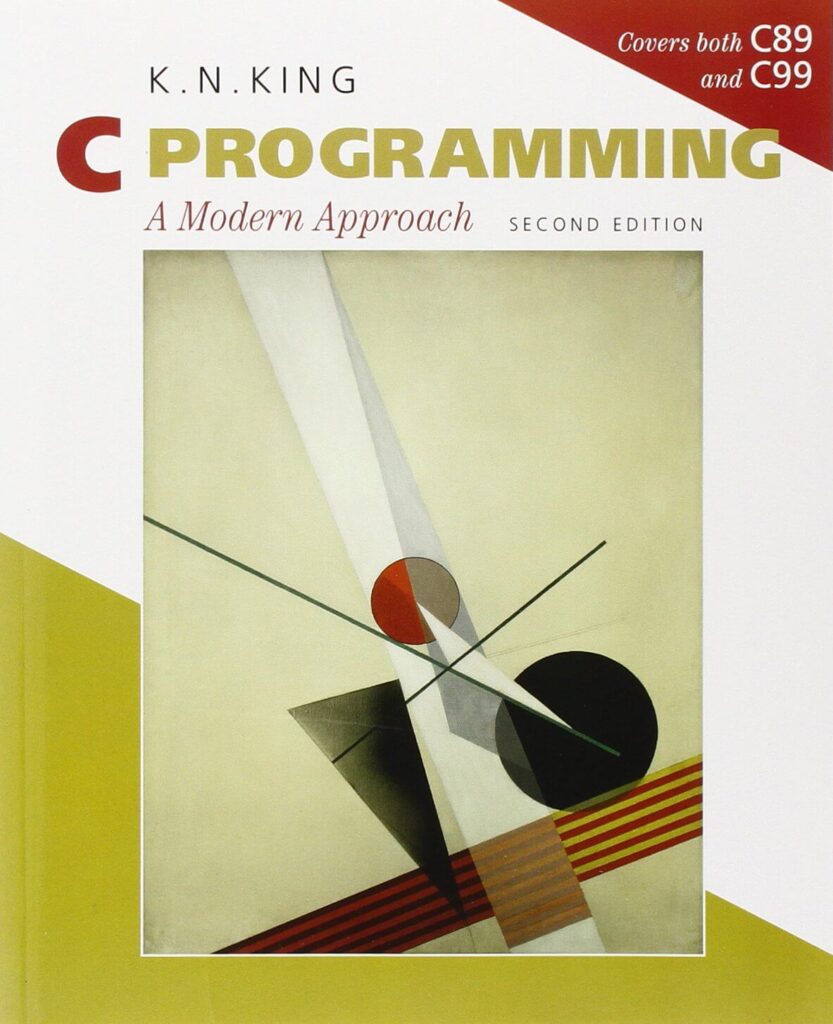Here you’ll get the best books on C programming, learning C has many benefits and leads to a good start in programming.
Best Python courses for learning Python and preparing for coding interviews.
Table of Contents
What is C Programming?
C is a middle-level, general-purpose, imperative, and procedural computer language, originally developed by Dennis Ritchie in 1972 as a system programming language for writing operating systems. By being developed such a long time ago, C is considered as the base language for other modern programming languages and sometimes also known as “mother language” because of its versatility and flexibility that gives users maximum control with minimum commands.
Why Learn C Programming?
The best part about the C programming language is that it is recognized worldwide and it is a beginner-friendly language so once you get a good grip on this language you can easily learn other languages as well.
Considering the current technical needs, one should definitely learn the C programming language as it is a good language to start with and invest your time in. Learning C will help and teach you the technicalities and underlying principles of computer architecture.
Best Book to learn C Programming for beginners
Now, for a beginner, it might be a little difficult to select the perfect book to start their programming learning journey of C because selecting a perfect book in the starting is very crucial. So, below are the best-recommended books that you can use for learning C.
7 Best C Programming books for Beginners
1. Learn C the Hard Way

This book by Zed A. Shaw is an easy and direct introduction to modern C programming language. This book not only focuses on making the reader learn C programming but also introduces them to many new skills that are highly needed in the coding world. If you are truly a beginner and want to learn C programming and want to advance your skills, then this book could be a perfect pick for you because this book explains all the concepts in a very unique and easy way.
This book has 52 amazingly designed exercises to help the reader master the programming skills and certain programming techniques. Also, this book comes with a DVD containing 5 hours of video lectures and tutorials that completes this whole book perfectly.
2. The C Programming Language by Brian W. Kernighan and Dennis Ritchie

The main feature of this book is it is written by the creator of this language. This book lists out all the necessary concepts of the C programming language and elaborates the procedures and fundamentals of writing C codes.
It also focuses on covering some tricky parts like functions and loops which helps the reader to code elementary-level codes as well.
3. Head First C

Head First C by Dawn Griffiths and David Griffiths not only focuses on learning C programming but also on how to become a good programmer by providing a comprehensive learning experience. Apart from syntax, this book also has certain exercises and projects that test your abilities, help you in building new skills, and boost your confidence.
This book covers certain high-level areas of C programming as well such as dynamic memory management, multi-threading, pointers, and network programming.
4. C Programming Absolute Beginner’s Guide

C Programming Absolute beginners guide by Dean Miller and Greg Perry is considered the best book learning the C programming language as it is a comfortable and fast way to get into the comfort zone with C concepts and coding with step-by-step instructions. This book focuses on helping beginners to learn all the C concepts with super ease and write C programs beautifully and effortlessly.
The book has 32 chapters with each chapter focusing on and discussing the core and crucial concepts of C programming languages such as functions, strings, operators, storing and displaying data, organizing programs, and much more in a brief and straightforward way with concise examples followed by exercises to practice.
5. C Programming: A Modern Approach

“C Programming: A Modern Approach (2nd Edition)” by K.N. King is one of the best C programming books to choose from as this book has extensive revisions, unique exercises, and projects, and summarizes almost all the concepts of C programming language in a single textbook.
It is a well-written and approachable book that focuses on covering basic and advanced concepts so that this book can become a perfect pick not only for beginners but for intermediate programmers as well.
6. C: The Complete Reference

“C: The Complete Reference” by Herbert Schildt is again one of the gems for learning the C programming language. This book has complete in-depth coverage of the C language, function libraries, and the latest C features such as inline functions, restricted pointers, complex math, and variable-length arrays.
This book provides an immense amount of examples and exercises for practicing, a complete description of the C function library, and tips on working effectively and efficiently in a C programming ambiance.
The book has 26 chapters and covers concepts like Control statements, Data type and operators, classes and objects, interfaces, arrays, enumerations, and structures, constructors, destructors, and methods, exception handling, generics, inheritance, and virtual methods, multithreading and the task parallel library, extension methods, anonymous types, I/O, networking, and collections, reflection and runtime type ID, method and operator overloading, and implicitly typed variables.
7. Basic Computation and Programming with C

“Basic Computation and Programming with C” by Subhodip Mukherjee and Subrata Saha for beginners assists in the understanding of all the theoretical concepts and their applications and provides a full-depth coverage of the fundamentals of programming in C language and computation.
The unique part of this book that makes it different from others is it uses the approach of ‘Learn by Quiz’ including multiple-choice questions, their answers, and explanations which helps the reader in identifying the right option through the reasoning that why the remaining options are incorrect.
The book has 13 chapters and covers topics like Computer history, classification, and basic anatomy, Introduction to number system and logic gates, loop system, arrays, branching statement, string handling, pointers, functions, structures, files, preprocessors, linked lists, and many more.